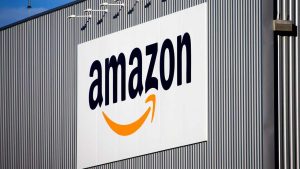 This month, Amazon (NASDAQ:AMZN) filed a trademark for a meal kit service similar to the kind offered by Blue Apron (NYSE:APRN) and others. The filing is dated July 6, just days after leading meal kit delivery company Blue Apron’s IPO. Reports of the service sent shares of Blue Apron down more than 11 percent.
This month, Amazon (NASDAQ:AMZN) filed a trademark for a meal kit service similar to the kind offered by Blue Apron (NYSE:APRN) and others. The filing is dated July 6, just days after leading meal kit delivery company Blue Apron’s IPO. Reports of the service sent shares of Blue Apron down more than 11 percent.
Amazon describes the kits as an “easy-to-follow, chef-designed recipe” that “includes perfectly portioned fresh ingredients.” User reviews indicate that the Meal Kits have been available since late June.
In the filing, the kits are listed as: “Prepared food kits composed of meat, poultry, fish, seafood, fruit and/or and vegetables and also including sauces or seasonings, ready for cooking and assembly as a meal; Frozen, prepared, and packaged meals consisting of meat, poultry, fish, seafood, fruit and/or vegetables; fruit salads and vegetable salads; soups and preparations for making soups.”
Amazon also has been quietly developing its own lines of pre-made food. Wickedly Prime is a new brand of snack foods and other prepared foods that Amazon launched earlier this year. The brand currently includes tea, chips, and soups.
Various trademarks that have been registered by Amazon appear to be food-related. The company has also filed around 10 trademarks related to the phrase “single cow burger”. Amazon offers Wagyu beef burgers made from grass-fed cattle exclusively on AmazonFresh. In all, there are 110 trademarks related to food filed by Amazon Technologies.
The service would line up with other moves that Amazon has made in food. Its most recent plan to acquire Whole Foods for $13.7 billion is a warning shot for companies that sell fresh foods. In the future, Amazon would be able to source a wider range of products more easily, thanks to its ownership of Whole Foods.
Amazon has made many efforts to expand into more fresh food services. It keeps developing services that rival existing, popular alternatives. Companies are hard-pressed to compete with Amazon on price and logistics when it decides to enter a market. Those competitors have gone through the investment of building a base of users with a demand for a product. Amazon exploits this by peeling off those customers with similar services at a lower price.
